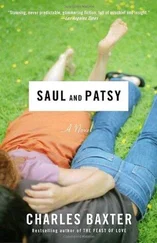The gist of their talk was that Donna’s parents wanted to meet with Elijah — just with him, and no one else. They had made this request to their daughter, and she had passed it on to Rafe, who had passed it on to his mother. Now, here it was. Why hadn’t they called him ? At the office? He would have returned their call! Well, they just hadn’t. Nor had they explained their rationale, or what the conversation would be about.
They wanted him to visit them late Sunday afternoon. This Sunday. In three days. Around five p.m. Given the Minnesota late autumn, the skies would be darkening by then. They lived in Delano, a semirural town west of Minneapolis. They were looking forward to talking to him, Susan said. They also planned, she told him, to give him some Christmas cookies, though it was still November.
When the doctor agreed, Rafe said he would text Donna, who would then tell her parents that his father would be coming. The most simple encounters could be made complicated with just a bit of effort. Rafe gave his father the address of Donna’s parents, out in Delano.
—
That Sunday, the doctor pulled into their driveway with the aid of his car’s GPS system. The family name, Lundgren, was attached with red metal letters to the driveway’s mailbox. From the outside, the house itself projected an eerie normality, a rigidly resolute cheerfulness. A two-story colonial, it seemed to be projecting tremendous quantities of light from each window, as if every lamp and overhead fixture had been turned on to counter some terrible visitation, which was himself. The light was not just incandescent but somehow inflammatory, as if the walls and knickknacks were giving off a fiery plume that extended out onto the lawn, with its flecks of snow. The doctor shook his head to free himself from drowsiness and then groaned as he turned off the car’s engine, opened the door, and heaved himself out, shaking off potato chip particles from his overcoat.
When he pressed the doorbell, he heard from inside the house a chime that sounded like the first few notes of “Onward, Christian Soldiers.” When the door opened, he saw Donna’s parents, both approximately his own age, somberly smiling in greeting as they ushered him in. Donna’s mother held a plate of cookies, which she transferred to one hand as she waved him inside and shouted her greetings. Elijah was used to talking to parents about their children in his medical practice. He knew all the parental styles. Although he felt he was ready for any variety of family drama, he had forgotten how country people like the Lundgrens hooted in loud welcome for social occasions even when they weren’t glad to see you. Noisy hospitality of this kind could be cold and heartless. The whole point was to avoid any trace of intimacy. In the Midwest, you just had to get used to it.
Mrs. Lundgren, neither pretty nor beautiful but solid, wore her brown hair in a moderately ostentatious beehive. Her eyes looked out from behind glasses attached to a tiny chain around her neck. Her shapeless skirt, a dull gray, gave the impression of formality heightened by the cameo brooch she wore on her blouse. She reminded the doctor of a loan officer he had once known at a bank, a no-nonsense woman whose face, after much experience of the world and probably much practice, radiated aggressive neutrality, seasoned with a bit of distaste for humanity.
Mr. Lundgren wore jeans and a sweater. His eyes were the impossibly deep blue that had so frightened the Native Americans when they gazed for the first time at the conquistadors. He shook hands with the doctor with a machinelike pneumatic grip, which out here signified masculine force and solidarity. “Hello,” the host said, showing his teeth briefly, in what might have been a smile.
Donna’s mother grinned at the doctor and directed him toward a living room chair planted in front of an audio speaker. Nearby was a side table with Ritz crackers topped with whipped cheese-colored goo. Each cracker had been placed carefully on a tiny paper napkin on which were printed minuscule blue flowers. A giant flat-screen TV, as large and solemn as an altar, held pride of place in front of the window, blocking the view. The TV’s screen was dark, but music from The Nutcracker suite poured out from the speakers, making it hard to hear anything else over the Dance of the Sugar Plum Fairy. The doctor thought he heard Mrs. Lundgren shout out her own name, Eleanor, over the music, and she gestured at her husband and instructed the doctor to call him Herb. “We’re Eleanor and Herb!” she said brightly, with an icy hostile smile. “Nice to meet you! Thanks for coming!” Without a rising inflection, she asked, “Can we get you a glass of water!” The doctor shook his head. He wanted whiskey and crusty bread, but you wouldn’t get that in this household even if you begged for it on your knees.
He felt another moment of sleepiness.
Across the room, Herb Lundgren, slumped majestically in his La-Z-Boy chair, stared at the doctor impolitely. There was a clear division of labor in this marriage: talking would be Mrs. Lundgren’s job, while her husband examined the guest for visual clues.
“I wonder,” Elijah said, “if you could turn the music down? I can’t quite hear you.”
“Of course,” Mrs. Lundgren said, advancing toward the audio system and fiddling with the dial. The sound dropped to a nearly inaudible hush, like an orchestra of mice playing inside the walls.
Mrs. Lundgren remarked on the weather, how cold it was getting. Her church, she said, worried about the homeless at this time of year. While she talked, the doctor surveyed the opposite wall above the sofa, where the Lundgrens had hung a cross-stitched Last Supper . Looking closer, the doctor suspected that the piece had been made from a mail-order hobby kit. Hours had been spent putting it together, in mad devotion. The mouse orchestra inside the walls continued to play Tchaikovsky while the doctor nodded in agreement to something Mrs. Lundgren had said that he actually hadn’t quite heard. Over in the corner, on a bookshelf, was the Oxford English Dictionary . What was that doing here? Talk about clues: you must never underestimate your opponent. Someone here did a lot of reading.
Now Mrs. Lundgren was talking about Somali refugees, and the terrible conditions in the Sudan, and the shocking treatment of women in sub-Saharan Africa, clitoridec  tomies and the like. “And that’s not the half of it,” she said. The doctor nodded. “It makes you wonder sometimes about those people, how they think,” she continued, as the doctor squirmed and closed his mouth, through which, he realized with embarrassment, he had been breathing. “We’ve been there, after all,” she said. “We saw it with our very own eyes. We worked in a refugee camp. We know what we’re talking about, so.”
tomies and the like. “And that’s not the half of it,” she said. The doctor nodded. “It makes you wonder sometimes about those people, how they think,” she continued, as the doctor squirmed and closed his mouth, through which, he realized with embarrassment, he had been breathing. “We’ve been there, after all,” she said. “We saw it with our very own eyes. We worked in a refugee camp. We know what we’re talking about, so.”
“Where was this?”
“The Kiziba refugee camp in Rwanda! Very inspiring!”
Mr. Lundgren glumly shook his head while he studied his hands. “But very hard work,” he muttered.
Very hard, his wife repeated, but God expects us, she said, to help take care of the less fortunate, didn’t the doctor agree? He did. Time passed. Global troubles were mentioned and disappeared into the conversational haze as if they were items of gossip. Suddenly the doctor remembered something his son had told him: Donna’s mother worked as a middle school world history teacher. As teachers do, she continued to drone on: they, the Lundgrens, had tried to give all their extra money away to the poor for the sake of justice, and they had assembled a little scrapbook with photographs of children whom they had sponsored. “It’s over there. We could show it to you. You can’t go into heaven carrying bags of money!” Mrs. Lundgren said, shaking her head and laughing mirthlessly over the comic irony of it all. Every life was sacred, she said, didn’t he agree? You could walk into heaven accompanied by the souls to whom you had lent a helping hand. That was possible. He that dwelleth in the secret place of the most High shall abide under the shadow of the Almighty, she said, confabulating.
Читать дальше

 tomies and the like. “And that’s not the half of it,” she said. The doctor nodded. “It makes you wonder sometimes about those people, how they think,” she continued, as the doctor squirmed and closed his mouth, through which, he realized with embarrassment, he had been breathing. “We’ve been there, after all,” she said. “We saw it with our very own eyes. We worked in a refugee camp. We know what we’re talking about, so.”
tomies and the like. “And that’s not the half of it,” she said. The doctor nodded. “It makes you wonder sometimes about those people, how they think,” she continued, as the doctor squirmed and closed his mouth, through which, he realized with embarrassment, he had been breathing. “We’ve been there, after all,” she said. “We saw it with our very own eyes. We worked in a refugee camp. We know what we’re talking about, so.”










